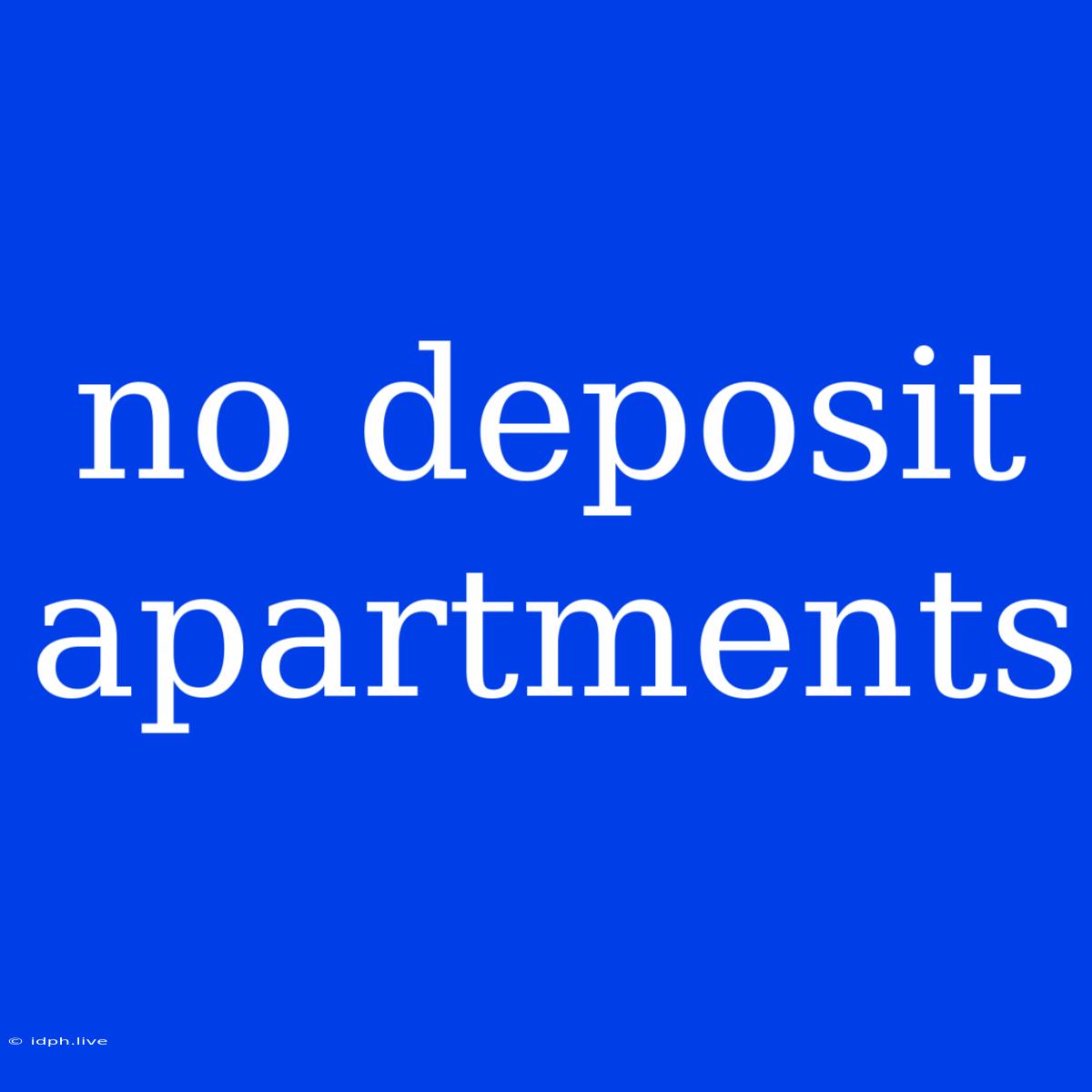No Deposit Apartments: A Dream Come True or a Risky Choice?
Moving into a new apartment is exciting, but the upfront costs can be daunting. A security deposit is usually required, often representing a significant chunk of your budget. However, with the rising popularity of no-deposit apartments, you may wonder if this is the perfect solution to ease your financial burden.
What are No-Deposit Apartments?
No-deposit apartments are rental units that do not require a traditional security deposit. Instead, landlords might opt for alternative security measures to ensure their property is protected. These measures can include:
- Security deposit insurance: This insurance policy protects landlords against damages or unpaid rent. You pay a monthly premium instead of a lump sum deposit.
- Higher monthly rent: Rent might be slightly higher to compensate for the absence of a traditional deposit.
- Credit score check: Landlords often check your credit history to assess your responsibility and financial stability.
- Guarantor: A guarantor, usually a friend or family member with good credit, agrees to cover potential damages or unpaid rent.
Benefits of No-Deposit Apartments:
- Reduced upfront costs: The biggest advantage is that you can move in without having to shell out a large upfront deposit.
- Improved cash flow: This allows you to save money for other essential moving expenses.
- Increased affordability: No-deposit apartments can be more accessible to individuals with limited savings.
Potential Risks of No-Deposit Apartments:
- Higher monthly costs: Although you avoid a lump sum deposit, you might end up paying more in monthly rent or insurance premiums.
- Limited availability: No-deposit apartments are not widely available, so finding one may be challenging.
- Stricter screening criteria: Landlords might be more selective in their tenant screening, leading to stricter requirements.
- Potential for higher insurance premiums: The monthly insurance premium might increase if you have a poor credit history or previous tenancy issues.
Alternatives to No-Deposit Apartments:
If you cannot find a no-deposit apartment, consider these alternatives:
- Renters insurance: This covers your belongings against damage or theft, offering some protection to your landlord.
- Negotiate a smaller deposit: Discuss the possibility of a lower security deposit with the landlord.
- Use a rent-reporting service: Regularly paying your rent on time can improve your credit score, potentially making you eligible for lower deposits in the future.
Conclusion:
No-deposit apartments offer an attractive option for renters seeking to reduce upfront costs. However, it is crucial to weigh the potential benefits against the associated risks. Carefully consider your financial situation, credit history, and the availability of no-deposit apartments in your desired area. Exploring alternative options and ensuring a solid understanding of the terms and conditions of any no-deposit program is essential for making an informed decision.

